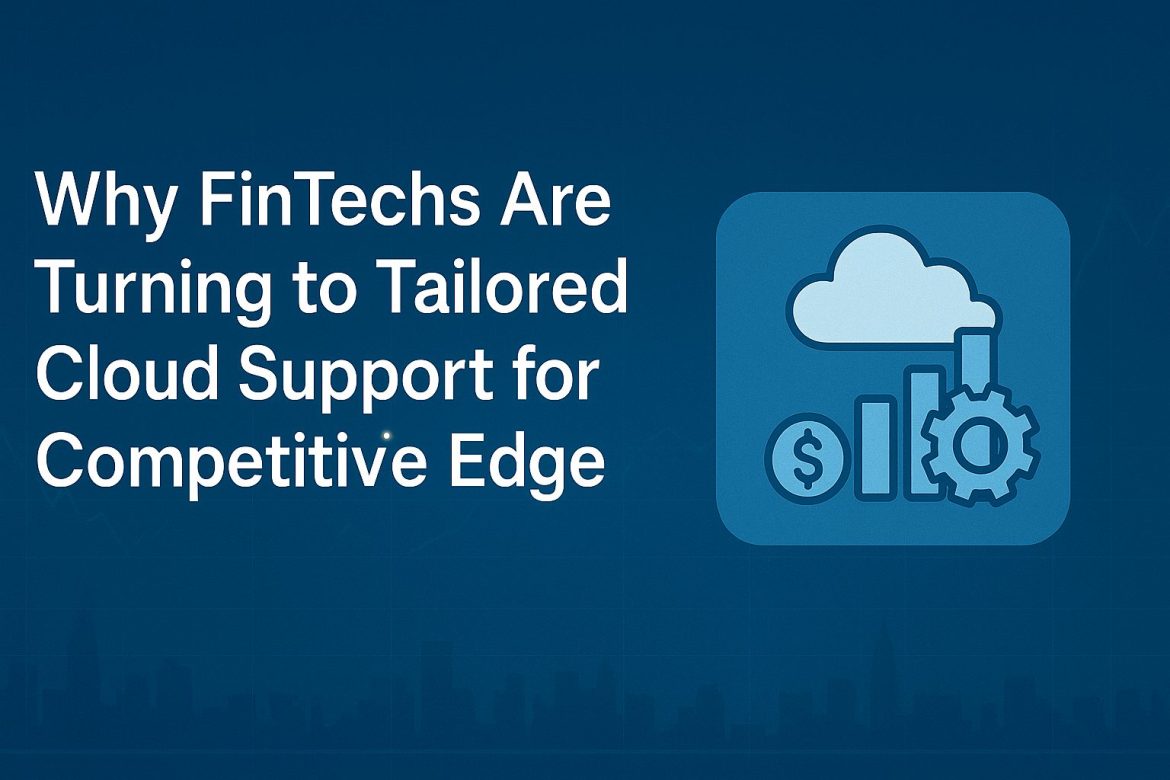The financial technology sector doesn’t just use the cloud. It battles on it. With more than 83% of FinTechs citing infrastructure scalability as their top backup, cloud solutions are like bringing a butter knife to a cyber war. For startups processing microloans or giants handling payments, a cloud support service isn’t a luxury. It’s the backbone that prevents compliance fines, fraud leaks, and scaling.
This blog dissects how FinTech-focused cloud architects turn tech in a strategic way.
1. Compliance on Autopilot
FinTech companies navigate GDPR, PSD2, SOC 2, and a complex landscape of regional regulations. A single misstep can mean 4% of global revenue in penalties, that is, the $186M Meta GDPR Fine.
How specialized support cracks this:
- Pre-hardened environments with compliance templates (e.g., AWS’s FinTech-ready or GCP’s Regulated Workloads).
- Automated audit trails using tools like AWS CloudTrail + Terraform to auto-document every config change.
- Real-time compliance scoring (e.g., Azure’s Compliance Manager flags risky IAM policies before auditors do).
Always look for providers with FINRA/SEC-certified data centers if you’re in capital markets.
2. Security Features
FinTech applications face more attack attempts than other industries. Common ignorance, like unmonitored service accounts or improperly exposed S3 buckets storing sensitive KYC documents, becomes a low-hanging fruit, all of which creates a loophole for attackers to attack. This is why specialized security measures are non-negotiable:
Specialized Security added:
Implementing zero-trust segmentation (like GCP’s BeyondCorp) ensures every device and user is continuously verified before accessing critical systems. APIs demand extra hardening of OAuth 2.0, with mTLS is essential for secure connections to financial data pipelines like Plaid or Yodlee. And because fraud patterns evolve daily, anomaly detection tools (such as AWS Fraud Detector) must be finely tuned to spot fake account signups or suspicious transactions in real time.
3. Scaling with Precision and Control
Rapid growth can break systems just as easily. Standard auto-scaling often stumbles under sudden spikes, load balancers choke, connections time out, and infrastructure buckles when it’s needed most. This isn’t just about adding more servers; it’s about architecting for unpredictability.
The solution is intelligent scaling that anticipates rather than reacts:
- Predictive scaling analyzes historical patterns to proactively provision resources before demand hits, avoiding the lag of traditional autoscaling.
- Container-native architectures enable near-instant workload deployment, bypassing VM spin-up delays during traffic surges.
- Geographic workload distribution prevents regional bottlenecks by dynamically routing transactions to the nearest available resources.
4. Improved Speed to face the Market
In financial technology, being first isn’t just about bragging rights, it’s about survival. The difference between launching in months versus years can determine whether you capture market share or watch from the sidelines. Traditional infrastructure approaches simply can’t keep pace with the velocity demanded by modern finance.
The acceleration comes from strategic shortcuts:
- Pre-integrated financial components eliminate months of custom development for common requirements like identity verification or payment processing.
- Automated compliance guardrails built directly into deployment pipelines ensure regulatory requirements are met without manual review bottlenecks.
- Event-driven architectures replace monolithic systems with modular services that scale precisely with demand, avoiding the overhead of cloud infrastructure management.
5. Data Processing at Scale
The financial sector operates at speeds where milliseconds translate to millions. Generic cloud solutions, designed for average workloads, fall short when tasked with the extreme demands of modern finance. High-frequency trading can’t tolerate latency, credit decisions require live data, and fraud detection must happen in the blink of an eye.
Specialized financial clouds rise to this challenge through purpose-built architectures:
- Ultra-low latency data layers keep critical information in memory, eliminating the sluggishness of disk-based systems
- Massively parallel processing engines handle transaction volumes that would overwhelm conventional systems
- Distributed edge networks push decision-making closer to users, shaving critical milliseconds off response times
Conclusion
In this industry, expert cloud management isn’t just technical debt waiting to happen, it’s either your competitive advantage or your most significant liability. While generic cloud providers offer the basics, FinTech leaders need partners who speak their language – one that blends Security standards that handle heavy money flows and criminal patterns.
Partner with SupportPRO for 24/7 proactive cloud support that keeps your business secure, scalable, and ahead of the curve.




